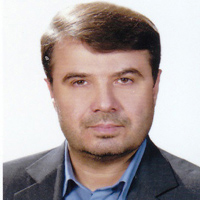Historicity and it's Relation to Fundamental Ontology in Heidegger's Being and Time
Heidegger in Being and Time, following Kant, who considered transcendental logic as a condition for the possibility of empirical science, considers historicity as a transcendental condition of historiography. He turns the epistemological and methodological question of the historical sciences into an ontological question; that is, instead of asking “under what circumstances can the objectivity of the historical knowledge be confirmed?” he asks, “what kind of existence Dasein have that allows him to care about himself and the world, and understand the meaning of his past?” “And how is there such a thing as history at all?” In order to understand the importance of historicity in the general outline of the book, we should consider its relation to the main question of the work; “What is the meaning of Being?” Hence, this article pursues two goals; First, it tries to show the place of historicity in the whole work, in such a way that is clear how Heidegger first starts from the pre-theorical understanding of Dasein as “existence”, ang then moves toward the discovery of the main structure of existentials as “concern”; Then he introduces “temporality” as a transcendental structure of concern; And finally, it comes to this that the concrete form of temporality is “historicity”. The second goal of this article is to reinterpret this debate with regard to the question of “the meaning of Being”. In this regard, I try to explain that historicity, as a concrete form of temporality, shows the openness of Dasein as the scope of the emergence of the meaning of Being and beings is a close event, which has its beginning and end, as standing on the possibilities it is thrown to them and it takes from its heritage. From this point of view, Heidegger, following Kant’s tradition, considers meaning- giving as a finite process, but unlike Kant, who considered this finitude in terms of the dependence on sensory intuition of being in the world, and thus as the ontic, he considers it as an ontological. He Knows that it arose from the special way of existence of Dasein. Being and Time finally reaches the point that the meaning-giving process which, as the verb “temporalizing” and “hisoricizing” is expressed in trads of past, present, future, or in the other words, heritage, fate, destiny. So, historical finitude reveals the concrete form of temporal finitude. The terms of heritage, fate and destiny each confirm the finitude od Dasein, and in this way, the finitude of the meaning-giving event. In its powerlessness, Dasein in undertakes its heritage in an authentic way. Dasein cannot be its own foundation, but is thrown to its possibilities.
Heidegger , Being , Time , historicity , Temporality , fundamental ontology
-
Envy; Kierkegaard's Critique of the Age of Reflection
Sayyed Kiarash Sheikholeslam *, Sayyed Hamid Talebzadeh
Philosophy, -
Mystical Analysis of the Hazards
Majid Jahani *, Sayed Mohamad Reza Hosainie Beheshti, Sayed Hamid Talebzade, Mehdi Ghavam Safari
Journal of Environmental Hazard Management,



